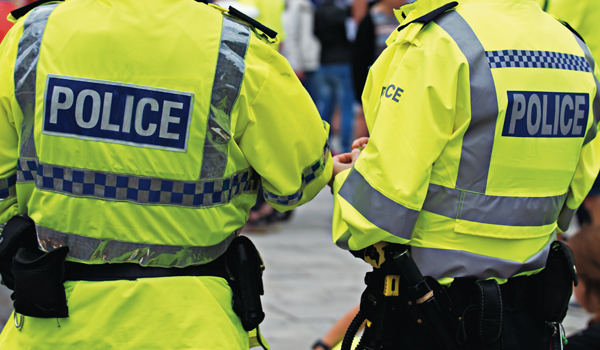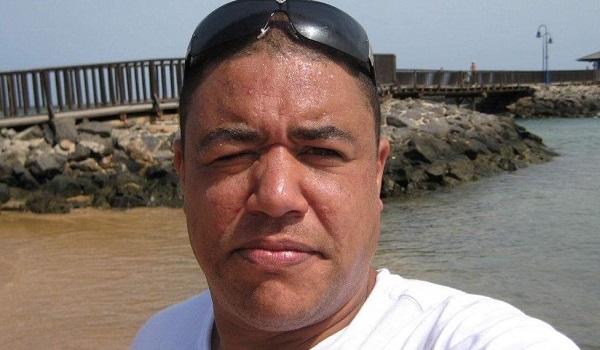Deaths following police contact remain stable but fatal shootings fall
The number of fatal police shootings has fallen to its lowest level for seven years, newly published figures from the Independent Office for Police Conduct (IOPC) have shown.
The IOPC’s 17th annual report on deaths during or following police contact said there was one fatal police shooting during 2020/21. This compared with three the previous year and is the lowest figure since 2014/15.
Published for the 17th year, the statistics provide an official record setting out the number of such deaths, the circumstances in which they happen, and any underlying factors.
The report shows:
- There were 19 deaths in or following police custody, an increase of one from 2019/20, and in line with the average figure for the last decade;
- Seven people were taken ill or were identified as being unwell in a police cell, four of whom were taken to hospital where they died on arrival, or sometime later, and three people died in a police custody suite;
- Ten people were taken ill at the scene of arrest, of whom two died at the scene;
- Two people died following release from police custody;
- This year there were 25 fatalities from 20 police-related road traffic incidents (RTIs). This represents an increase of one death on 2019/20. Of the 25 deaths, 20 fatalities arose from 15 police pursuit-related incidents. There was one emergency response-related incident resulting in a fatality;
- There were 54 apparent suicides following police custody, the same as the previous year; and
- The IOPC also investigated 92 other deaths following contact with the police in a wide range of circumstances, a decrease of 15 on the previous year. Deaths are only included in this category when the IOPC has conducted an independent investigation.
Mental health concerns and links to drugs or alcohol were again common factors among many of those who died:
- 12 of the 19 people who died in or following police custody had mental health concerns, and 14 had links to drugs and/or alcohol,
over half (48) of those who died following other police contact were reported to be intoxicated with drugs and/or alcohol at the time of the incident, or it featured heavily in their lifestyle; and - More than two-thirds (62) were reported to have mental health concerns.
Restraint and use of force:
- 12 of the 19 people who died in or following police custody had been restrained by the police (11) or others (one) before their deaths. There were nine, out of the 92 other deaths following contact investigated, that involved restraint or other use of force by police (eight) or others (one). The use of force did not necessarily contribute to the death.
Ethnicity:
- Of the 19 deaths in or following custody, 17 of the deceased were white and two were black;
- The person fatally shot by police was white;
- Of the 12 deaths in or following custody where restraint was used, 11 of the deceased were white and one was black; and
- Of the nine other contact deaths involving use of force, four of the deceased were white, three were black, and two were Asian.
Road traffic fatalities:
- Three pursuit-related incidents resulted in eight fatalities, compared to no multiple fatality incidents in 2019/20,
- Of the 20 pursuit-related fatalities, 16 were the driver or passenger in the pursued vehicle and three people were pedestrians who were hit by the pursued or suspect vehicle. The average age of those who died as either driver or passenger in a pursued or fleeing vehicle was 23.
Other deaths:
- 86 fatalities followed contact with the police, either directly or indirectly, after concerns were raised about someone’s welfare – of these, 21 related to a report of a missing person; 21 were linked to concerns that were domestic-related.
Apparent suicides:
- Of the 54 apparent suicides, 26 (48 per cent) of those who died had been arrested for an alleged sexual offence – of these 21 (39 per cent) involved alleged offences against children. These proportions are higher than the figures recorded last year (30 per cent and 22 per cent respectively), and higher than average figures.
The statistics include some force-specific data.
Commenting on this year’s figures, IOPC Director General Michael Lockwood said: “Substance abuse, intoxication, and mental health vulnerabilities are key issues this year. Yet again we are seeing a sadly familiar picture of people with clear vulnerabilities coming into contact with the police because their needs aren’t adequately met by other services.
“All but five of the 19 people who died in or following police custody in 2020/21 were known to have links to alcohol and/or drugs, and 12 had mental health concerns. The majority of the 92 other deaths we investigated were people who came into contact with the police because of concerns for their welfare and more than half were reported to be intoxicated or affected by substance abuse. Over two-thirds of those who died were reported to have mental health concerns.
“Each of these deaths is a tragedy and, while not all will have been avoidable, an over-reliance on the police service to step in to critical situations involving medical emergencies or mental health crises is unfair to those who have died, their families, and the often ill-equipped officers involved. These issues cannot be solved by the police service alone and need a concerted, system-wide response to help prevent future deaths from occurring.
“It is notable that restraint by police was a feature in 18 of these deaths. While the use of restraint did not necessarily contribute to the deaths, it underlines the importance of police officers using de-escalation and communication techniques when they encounter vulnerabilities such as mental health and substance abuse.
“We therefore welcome the new guidelines on conflict management from the College of Policing, along with enhanced training for officers in avoiding the use of force wherever possible.
“We continue to share learning from our work with the Ministerial Board on Deaths in Custody and welcome its renewed focus on cross-Government and multi-agency work on substance misuse and mental health. The Government’s update on the Angiolini review, published last week, also reflected further work to ensure people in mental health crisis receive the right support.
“Police have hundreds of thousands of interactions with the public each year. Where deaths do occur following contact with police, it is important we have in place robust systems of investigation and accountability, identifying where changes can be made to reduce future risks.
“I hope this report along with the findings and recommendations from our independent investigations, and the experiences of bereaved families, will now be used to make improvements which prevent future deaths.
“With our increased focus on prevention, we have issued 63 learning recommendations from independent investigations following deaths in the past two years. These extend across a range of areas including police custody and the welfare of detainees, use of body-worn video, and roads policing.”
The Association of Police and Crime Commissioners (APCC) mental health and custody leads, Surrey police and crime commissioner (PCC) Lisa Townsend and Merseyside PCC Emily Spurrell said in a joint statement: “Whilst today’s report is evidence of the high levels of public transparency rightly applied to policing in England and Wales, each of the tragic deaths in 2020/21 represent much more than a statistic.
“It is clear people entering police custody are highly vulnerable and often have acute needs, which is why police guidance and training to effectively identify vulnerability should be maintained.
“The high levels of vulnerability present within police custody demonstrate the clear need for PCC-led Independent Custody Visiting schemes, which are made up of community volunteers who visit police cells unannounced to check on the welfare of detainees, highlighting risks and concerns in real time and providing public assurance.”
They added: “PCCs will review the IOPC’s important data and ensure policing and partners are made aware of learning to prevent further deaths in the future. We will also raise the report with national stakeholders in our capacity as APCC leads.”
The report, additional data tables and a presentation on the most recent statistics on deaths during or following police contact are available on the IOPC website.







